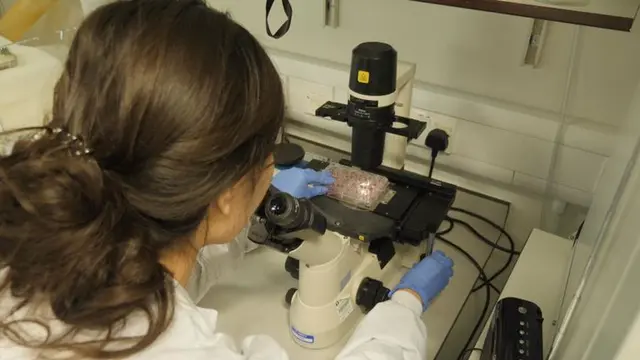The scientist leading the UK's research into a coronavirus vaccine says his team have made a significant breakthrough by reducing a part of the normal development time from "two to three years to just 14 days".
Professor Robin Shattock, head of mucosal infection and immunity at Imperial College London, said he is now at the stage to start testing the
vaccine
on animals as early as next week with human studies in the summer if enough funding is secured.
He told Sky News: "Conventional approaches usually take at least two to three years before you even get to the clinic. And we've gone from that sequence to generating a candidate in the laboratory in 14 days.
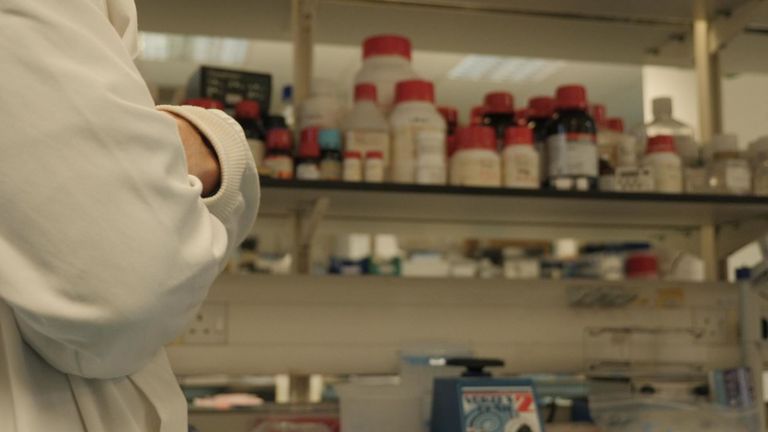
Image:Researchers say they have made a significant breakthrough
"And we will have it in animal models by the beginning of next week. We've short-tracked that part. The next phase will be to move that from early animal testing into the first human studies.
"And we think with adequate funding we could do that in a period of a few months."
Professor Shattock is part of a global effort to develop a vaccine that could potentially save hundreds or thousands of lives if this coronavirus outbreak develops into a full blown pandemic.
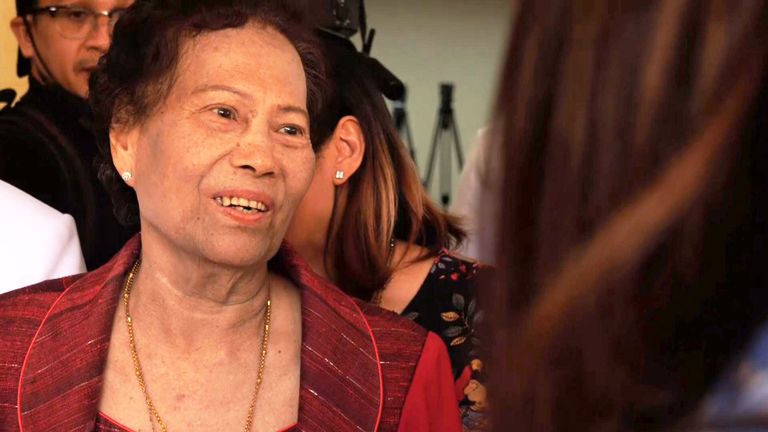
Coronavirus survivor jokes outside hospital
The vaccine will be too late for this current outbreak but it will be crucial if there is another one.
He said: "It's not going to be too late if this becomes a pandemic and if it circulates around the world. We still don't know much about the epidemic itself so it may wane over the summer months if it is like influenza.
"We may see a second wave come through on a global basis and if it comes a vaccine will be really important and would be in place to tackle that."
Listen to "What's being done about the deadly coronavirus in the UK?" on Spreaker.
**:: Listen to the Daily podcast on **
Apple Podcasts
**, Google Podcasts
, Spotify
, Spreaker
**
Scientists from China, the United States, Australia and Europe are all racing to develop a vaccine and are collaborating with each other in an effort to speed up the process.
Britain has pledged £20m to CEPI, the Coalition for Epidemic Preparedness Innovations, an international agency set up in 2017 to deal with health crises exactly like this one.

Hong Kong vigilantes test arrivals from China
And a further £20m has been earmarked for rapid research into coronavirus here in the UK. The money is crucial but so too is knowledge.
The
**2003 SARS epidemic **
killed some 800 people.
At the time China was severely criticised for withholding information. This time it has been praised for sharing crucial data with the international health community.
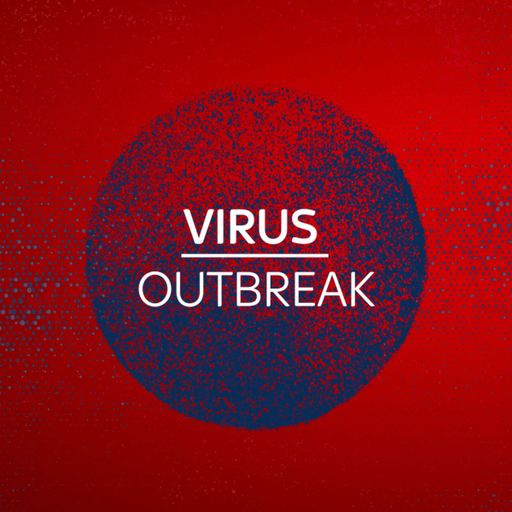
Coronavirus outbreak: Sky News looks at the issues
The lessons learned after the SARS outbreak are proving crucial in helping scientists deal with this epidemic. But a SARS vaccine was never fully developed. When the virus died out the funding dried up.
Dr David Heymann is one of the world's leading experts on infectious diseases. He lead the international fight against SARS and told Sky News this time a vaccine must be developed.
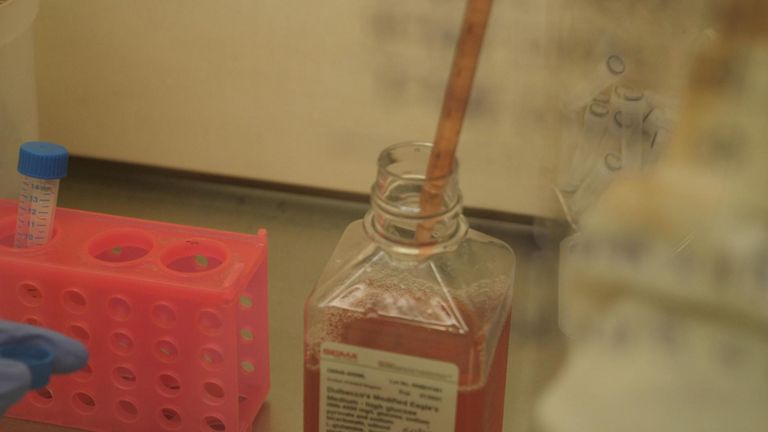
Image:Scientists are racing to find a vaccine for the virus
He said: "In the case of SARS there was lots of interest in developing a vaccine but that disappeared rapidly after the outbreak was contained and over.
"Today we have a new coalition - the CEPI - which is based here in London and which is simulating development of vaccines.
"And hopefully that will continue to stimulate development of corona vaccines after this outbreak is over. It may not be effective in getting a vaccine ready for this outbreak, a vaccine may not even be necessary.
"But it would be nice to have a coronavirus vaccine somewhere on the shelf which could be rolled out during a future epidemic."
 简体中文
简体中文

